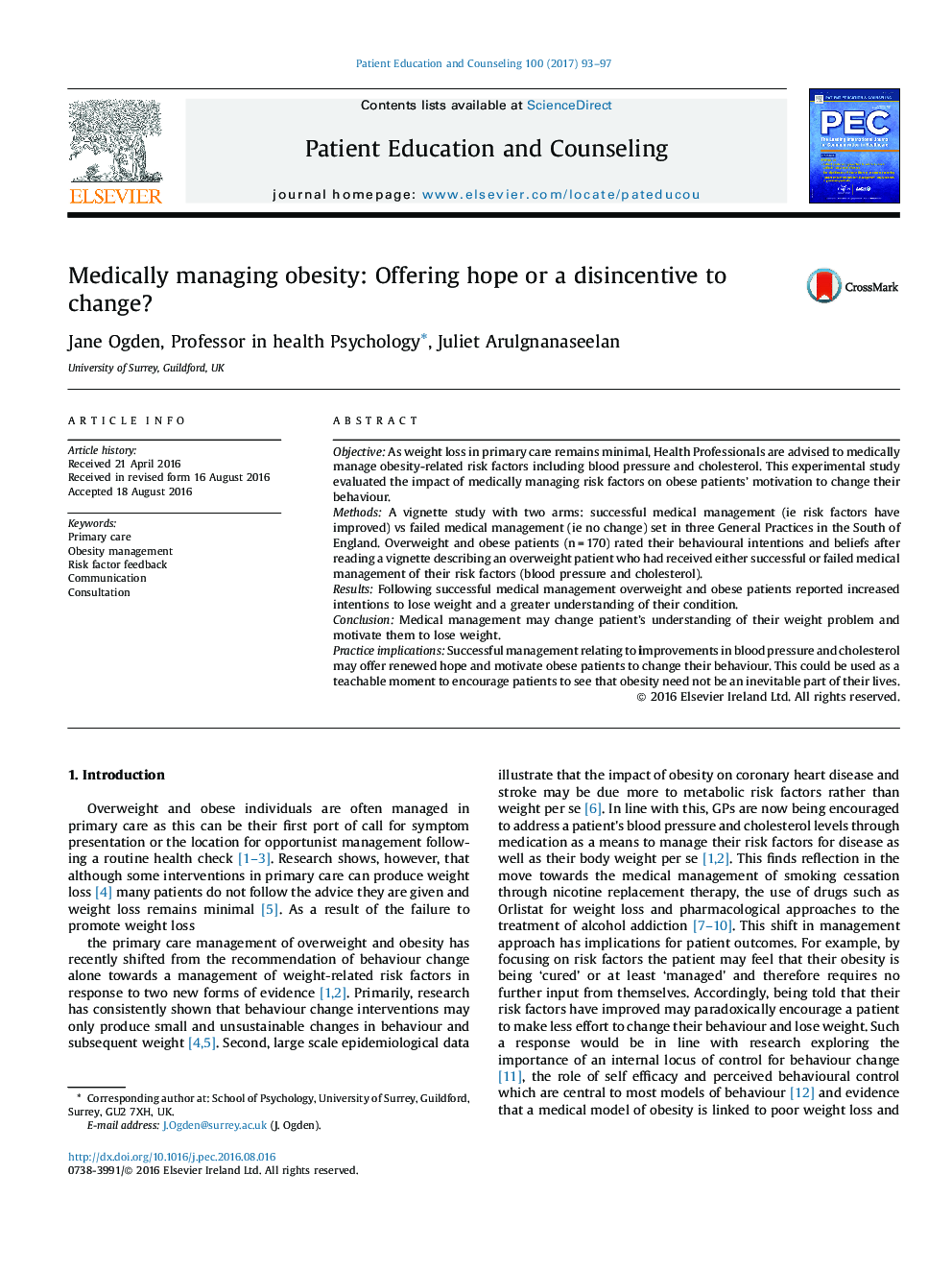| Article ID | Journal | Published Year | Pages | File Type |
|---|---|---|---|---|
| 5682017 | Patient Education and Counseling | 2017 | 5 Pages |
â¢GPs often medically manage obesity risk factors (eg. Blood pressure/cholesterol).â¢It is unclear whether this offers hope or demotivates obese patients.â¢This study used a vignette experimental design.â¢Successful medical management (improvement in risk factors) enhanced intentions to lose weight and changed beliefs.â¢Successful medical management could be a teachable moment to offer hope to patients.
ObjectiveAs weight loss in primary care remains minimal, Health Professionals are advised to medically manage obesity-related risk factors including blood pressure and cholesterol. This experimental study evaluated the impact of medically managing risk factors on obese patients' motivation to change their behaviour.MethodsA vignette study with two arms: successful medical management (ie risk factors have improved) vs failed medical management (ie no change) set in three General Practices in the South of England. Overweight and obese patients (n = 170) rated their behavioural intentions and beliefs after reading a vignette describing an overweight patient who had received either successful or failed medical management of their risk factors (blood pressure and cholesterol).ResultsFollowing successful medical management overweight and obese patients reported increased intentions to lose weight and a greater understanding of their condition.ConclusionMedical management may change patient's understanding of their weight problem and motivate them to lose weight.Practice implicationsSuccessful management relating to improvements in blood pressure and cholesterol may offer renewed hope and motivate obese patients to change their behaviour. This could be used as a teachable moment to encourage patients to see that obesity need not be an inevitable part of their lives.
